To celebrate 25 years since our first edition of Able Magazine, we’ve looked back at some of the key disabled people who have contributed to changing cultural perspectives and attitudes for the better.
Media and entertainment
Alex Brooker
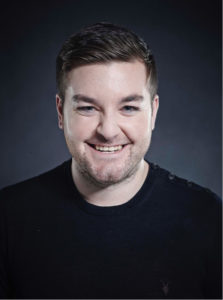
Brooker was a newspaper sports reporter before hitting TV with the Channel 4 breakout programme, The Last Leg which he has co-hosted with disabled comedian, Adam Hills since 2012. The show was an instant hit during its initial run, bringing together highlights and humour during the London Paralympics. Brooker’s impact on disability is largely through his visibility on what has become a mainstream television programme. The anarchic flavour of the show has caused mild controversy but also shows that disability isn’t off-limits and that we really should talk about it more freely. In 2018 he came top of the Shaw Trust’s Disability Power 100 list of the most influential disabled people.
Christopher Reeve
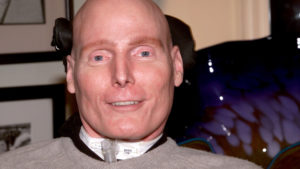
Movie star Christopher Reeve was famous for playing Superman before becoming paralysed in a horse riding accident in 1998. Reeve used a wheelchair and needed a portable ventilator to breathe for the rest of his life. That’s where the story might have ended were it not for his decision to campaign on behalf of people with spinal cord injuries and for human embryonic stem cell research, founding the Christopher Reeve Foundation and co-founding the Reeve-Irvine Research Center – arguably Reeve’s most heroic role.
Warwick Davis
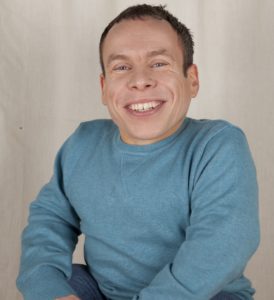
Actor, Davis (right) is known to millions of fans through his roles in the Harry Potter and Star Wars movies. In recent years, he has become more recognisable as a presenter and personality in his own right, even though he chose to satirise his success in sitcom, Life’s Too Short, poking fun at some of the challenges and literal barriers that stand in his way as a person of short stature. Davis is co-founder of charity, Little People UK, which provides support to people with dwarfism and their families. He also founded the Reduced Height Theatre Company to “celebrate the untapped acting talent that exists among the short actor community”.
Frank Gardner
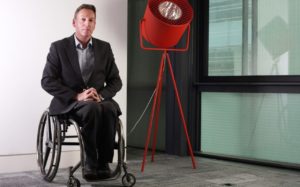
Gardner is one of the most measured and respected voices on British television. He’s reported from the Middle East since 1997, specialising in stories on terrorism since 2001. In 2004 he was shot and seriously injured by al-Qaida. Incredibly, he returned to his work in 2005 using a standing frame or wheelchair and remains Security Correspondent with the BBC, often reporting from locations regarded as anything but safe.
25 years…
Self help
We’ve always advocated positive thinking. Rhonda Byrne released her
book, “The Secret” in 2006 based on her ‘laws of attraction’ whereby people are encouraged to focus on what they want in order to draw it closer to them. The book was translated into 40 languages and sold an estimated 19 million copies in its first year of publication.
Science
Stephen Hawking
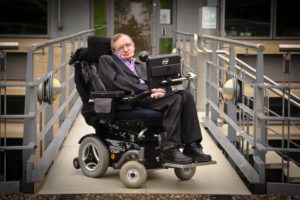
Hawking became one of the most respected scientific voices during his lifetime. Interestingly, he also achieved a very rare thing for a well-known disabled person; to be recognised for his achievements ahead of being recognised as a disabled person. Indeed, in a 2002 poll organised by the BBC, he was ranked 25th of the 100 Greatest Britons.
His work included theorems on gravitational singularity relating to general relativity as well as the theoretical prediction that black holes emit radiation, often called Hawking radiation. Hawking’s book, ‘A Brief History of Time’ was a huge bestseller despite its complicated subject matter.
Leadership
Robin Hindle Fisher

The Extra Costs Commission, was an independent inquiry into the extra financial burden faced by disabled people. The report was a landmark in that it quantified where disabled people were dealing with extra expense and could therefore be presented to the Government in an attempt to influence policy. Hindle Fisher has also used the report’s findings to write about where disabled people might save money for the Money Advice Service and the Financial Times.
Jane Campbell
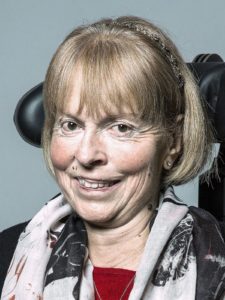
Baroness Campbell is a vigorous campaigner for independent living and an advocate of civil rights for disabled people.
In 1996 she co-founded the National Centre for Independent Living (NCIL) before becoming the Minister for Social Care. She has also served as a commissioner for the Disability Rights Commission and EHRC. Campbell was made a crossbench life peer in 2007.
Bert Massie
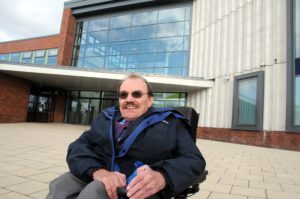
The Disability Rights Commission was established in 1999 with Massie as its chairperson given responsibility to update the Disability Discrimination Act, 1995 with powers of investigation and enforcement of disability legislation, and was also responsible for advising employers regarding equality for disabled people in the workplace. In 2007 he became the founding Commissioner of the Equality and Human Rights Commission. Since many unemployed disabled people aren’t covered by workplace protections such as unions, their civil rights can often be confused or ignored altogether. Massie’s work ensures that there are organisations that disabled people can turn to for support.
Liz Sayce
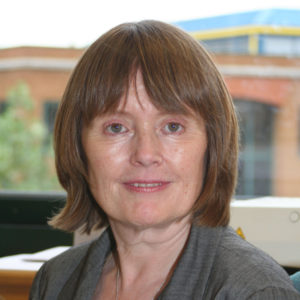
Sayce has been shaping disability policy for more than 20 years in key roles including Chief Executive of Disability Rights UK and Commissioner at the UK Commission for Employment and Skills. Her work has covered a broad area including skills, employment (including leading a review into disability employment programmes in 2011), housing, health and social care – all with the aim of promoting independent living, career opportunities and shifts in attitudes.
Sport
Tanni Grey-Thompson
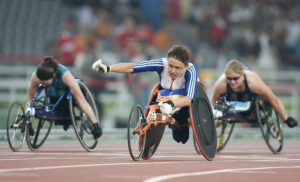
Although her tally of 11 Paralympic medals has been surpassed by Sarah Storey, Grey-Thompson’s were arguably more significant given that she won hers over years when the Paralympic movement was struggling to continue, let alone gain the credibility and visibility it has of late. Baroness Grey-Thompson sits on the boards of several public institutions and is the patron of numerous charities, providing a much-needed disability perspective and voice.
Philip Craven
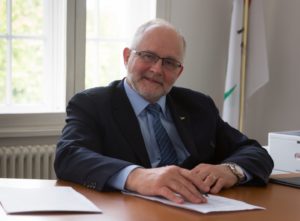
Craven literally shaped disability sport as we know it. As a former Paralympic wheelchair basketball player he was perfectly placed to help design a new classification system for wheelchair basketball players based on a 4-class functional system. This helped it become recognised more as a sport proper, rather than simply a method of rehabilitation. Craven was elected President of the International Paralympic Committee in 2001 and oversaw eight Paralympic Games, including London 2012 when he become the first president to have a Paralympics hosted in their own country.
Watch out for…
Over the last 25 years we’ve seen how important it is for disabled people to speak up and speak out. Here are a few of the disabled people that we believe will carry the disability conversation forward.
Sophie Morgan

Morgan is best known as having been the lead presenter for Channel 4’s TV coverage of the Rio Paralympics but she’s actually been involved in various television projects since 2004 when just nine months after the accident that caused her paralysis, she took on a 220 mile expedition across Nicaragua for BBC Two’s Beyond Boundaries programme. Much of Morgan’s television work has been documentary-based and this is reflected in her campaigning for the Back-Up Trust and in becoming ambassador for inclusive disability event, Parallel London and as a patron for disability charity, Scope. In 2013, she was named Ultimate Campaigner of the Year in Cosmopolitan’s Ultimate Women Awards.
Martyn Sibley
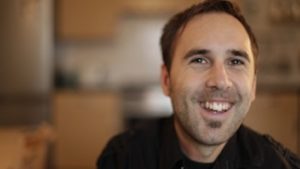
It’s difficult not to like and admire Martyn Sibley. He’s widely known for presenting accessibility themed travel videos and for running lifestyle website, Disability Horizons. Sibley’s personal vision is to “live in a world without barriers, prejudice or discrimination” and to this end, he’s worked with businesses, government and charities as well as encouraging other disabled people to enjoy a more independent life. His infectious positivity regarding disability is reflected in the title of his book, Everything Is Possible.
Frances Ryan
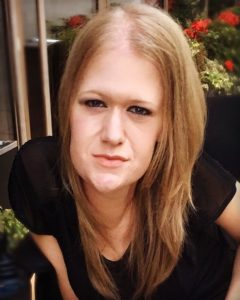
Journalist Frances Ryan writes The Guardian newspaper’s austerity column: ‘Hardworking Britain’ and has appeared on television and radio shows including the BBC’s Sunday Politics and Radio 4’s Woman’s Hour. Ryan has a doctorate in politics and writes and campaigns mainly on issues relating to disability, social mobility and feminism. Her Hardworking Britain column often uses personal stories to outline how government policy impacts everyday people. Her first book, Crippled: Austerity and the Demonisation of Disabled People, will be published in June.
Shelby Lynch

Shelby Lynch is a 21 year-old with a mission to influence the fashion industry to become more inclusive. Lynch started her own YouTube channel when she was 17 and regularly talks about her experiences of living with Spinal Muscular Atrophy Type 2 (SMA) and using a ventilator to breathe. In 2017 Lynch posted an Instagram picture in a Missguided hoodie commenting that disabled people aren’t often seen or described as sexy or beautiful. The response was epic and Missguided invited her to be part of their inclusive fashion campaign. She has since made more videos about confidence and body image. We have a feeling that she’s got much more to say.
Samantha Renke

Actress and public speaker, Renke is well-known for her appearance in a Maltesers television advert but has also been in other independent films, winning the Best Actress Award at the LA Diversity Film Festival for her part in Little Devil. Renke has been especially outspoken about perceptions of disabled people, particularly regarding relationships. She told The Sun newspaper: “They can’t comprehend that someone muscly or attractive would possibly be with me. But it’s like, what do you think we do on weekends? Play chess? It goes back to their own insecurities that they can’t visualise dating someone in a wheelchair and if they couldn’t, how could anyone else?” Renke also works with disability charity, Scope and is patron of the Head2Head Theatre Company and occasionally writes for The Huffington Post.
Nikki Fox
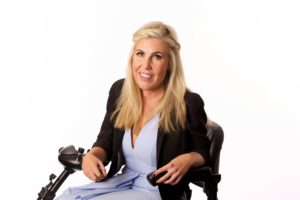
Fox was appointed as the BBC’s disability news correspondent in 2014. Fox had previously produced projects for the Beeb, such as her award-winning radio documentary, Beyond Disability: The Adventures of a Blue Badger in 2012, which looked at what it is really like to be disabled in the UK. As a wheelchair user with muscular dystrophy, she brings a sensitivity to reporting on disability issues as well as an authentic viewpoint.



